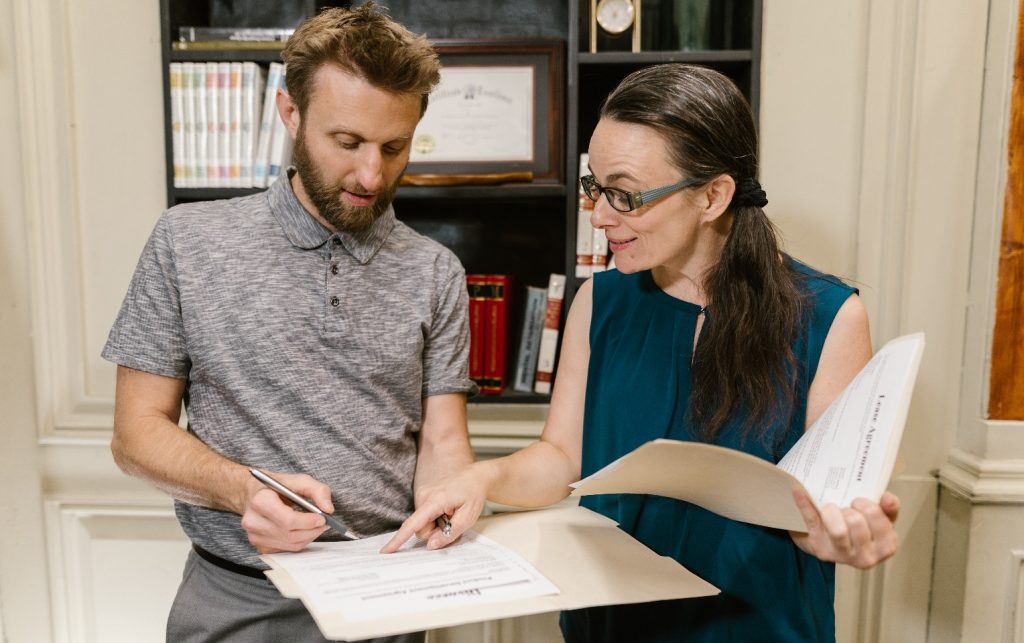Last Updated on December 6, 2024
Divorce is not something anyone would anticipate or dream of experiencing. Yet, it may be inevitable. A perfect scenario is when both parties understand its necessity and imminence, make a deliberate mutual decision, go through all the processes amicably, and live their separate lives happily ever after. But what if one spouse doesn’t want a divorce?
Unfortunately, such situations are quite frequent since not everyone would accept the ruined relationship. Therefore, some spouses may demonstrate their resistance, resentment, or anger by refusing to sign divorce papers. How do you deal with such a challenge? Can you force a divorce if your spouse won’t sign divorce papers?
In this article, we will explain what happens if your spouse won’t sign divorce papers, if dissolution is possible in such a case, what options you have, and what steps you should take to end the divorce process.
Understanding Why Your Spouse Doesn’t Sign Divorce Papers
Understanding why your wife or husband refuses to sign divorce papers will not change the situation but may prompt you on how to react and act further. Not all spouses do so out of spite, and a heart-to-heart conversation may sometimes be very helpful.
Even if both parties have already understood that the marriage will be dissolved anyway, here are some reasons your soon-to-be ex won’t sign divorce papers:
- Your spouse may still hope to clear up your misunderstandings and preserve your family. Communication is the most effective tool in such a situation. Share your feelings and see if you really have a chance for reconciliation.
- They may be hesitant because they worry about the impact of divorce on your children, their financial situation, or some other people or aspects of your future life. Calmly discuss all the issues in detail to ensure them that all the matters will be settled successfully if you and your spouse cooperate during the divorce process.
- Some resentful spouses may think that unsigned divorce papers will cause trouble and complicate the process for you. In fact, with such conduct, they can only create problems for themselves.
- Others truly believe that their refusal to sign divorce papers will make the marriage termination impossible. No, the absence of their signature and themselves in the courtroom will not stop the process. The legislature in any state provides for particular procedures in case a respondent is not signing divorce papers, which can sometimes make the case even simpler.
Do Both Spouses Have to Agree to Divorce?
The issue of whether both spouses need to agree to the marriage dissolution is rather specific. The short answer is no; the agreement of both is not necessary. But can you divorce without the other person signing the papers? Yes, you can, though the process may take more time to finalize.
Of course, it is easier to do everything yourself, especially if you know that the other party won’t cooperate. However, you are obliged to inform them officially about your intentions. Well, at least you should try. In fact, serving divorce papers to the respondent is one of the obligatory steps in the process.
On the other hand, even if your spouse hides from the process server, trying to stay unaware of the initiated action, it does not mean you will remain married. New York law provides for special mechanisms and procedures on how to get a divorce if the other person refuses to sign or even accept the papers.
So, what to do if your spouse won’t sign divorce papers? You should simply go on with a contested case. Can a judge force a divorce? Although judges do not like one-sided divorces, they have to deal with them occasionally.
If the defendant does not respond with any document to confirm or counterclaim your Complaint within the time provided, the judge will have to accept your request to enter default divorce, put your case on the calendar, and terminate your marriage without the other party’s involvement.
How to File This Paperwork If Your Spouse Won’t Cooperate?
If you wonder, “Can you divorce if your partner doesn’t want to?”, the answer is affirmative. Although the process may get more complicated and prolonged, such a state of affairs may even turn out to be more advantageous for you.
If your spouse refuses to cooperate, you have 2 possible options, depending on the circumstances: getting a default judgement of divorce if they do not respond to your petition or going for a divorce by publication procedure if they cannot be found for the process of service.
You will still need to serve the package of necessary papers to your spouse within 120 days after filing the Complaint with the court. If you are not sure if they will cooperate or know that they will argue the Complaint, you should ask a third party not younger than 18 to deliver the paperwork. The person who served the papers will need to fill out, sign, and notarize the Affirmation of Service to prove that the documents were properly delivered and accepted. Defendants usually ask, “Do I have to sign divorce papers if I don’t want to?” No, you don’t. However, this refusal may deprive you of your rights in matters of property division or child custody.
The defendant has 20 days to respond if the papers were served in New York State or 30 days if the service took place outside the state. Normally, they need to sign and return the Affirmation of Defendant if they agree with everything, and you can proceed with an uncontested divorce. If they do not agree with some of your terms, they may file a Notice of Appearance to make the case contested.
If you are interested in “How can I get a divorce without my spouse’s signature?”, note that in case the respondent does not provide any reply within the specified time, you will need to wait 40 days after the service date and simply file the rest of the papers to put your case on the calendar. In fact, you do not even need to file any special motion of default divorce or wait for some specific default decree of divorce in New York State. Just add an Affidavit of Service and a Sworn Statement of Barriers to Remarriage, if you were married in a religious ceremony, to the usual set of obligatory forms.
Sometimes, the defendant does not simply refuse to sign the papers but literally hides from the process server to avoid accepting the notice about the initiated action. This way, they hope to cause trouble to the plaintiff and halt the process since they know that the other party must be informed of its proceeding. However, even such actions can’t stop the process, as the plaintiff can obtain a divorce by publication.
Timeline for True Default Divorce
If you want to know, “How long does it take a default divorce to be finalized?”, remember that it will mostly depend on your actions and the speed of your reaction. Indeed, while almost every step of the process has set time limits, you do not always have to wait till the last day of the corresponding period: the sooner you take action, the faster the process will end.
To answer the questions, “How long does someone have to sign divorce papers?”, “How to force a divorce?”, and “When the process can be finalized?”, we have prepared an approximate default divorce timeline in New York State:
- After you have filed the Complaint with the court, you have 120 days to serve the papers to the defendant;
- If their location is known and the service of process is successful, the defendant has 20 days to file the answer or 30 days if they were served outside the state;
- If the mentioned period has expired but there is no response from the defendant, you need to wait 40 days after the papers were served to file the rest of the paperwork. In fact, it makes 10-20 days after the end of the period allocated for the defendant to respond;
- When you file the papers with the clerk’s office, the court will put your case on the calendar. The date the judge will start examining your case depends on the court’s schedule and workload;
- If the judge has any concerns, they may schedule a brief hearing to ask you some questions and issue the final order.
So, if your paperwork is properly prepared, and your requests are reasonable and do not violate the legal provisions, the judge can force a divorce and sign the final judgment without the presence or signature of the other party.


